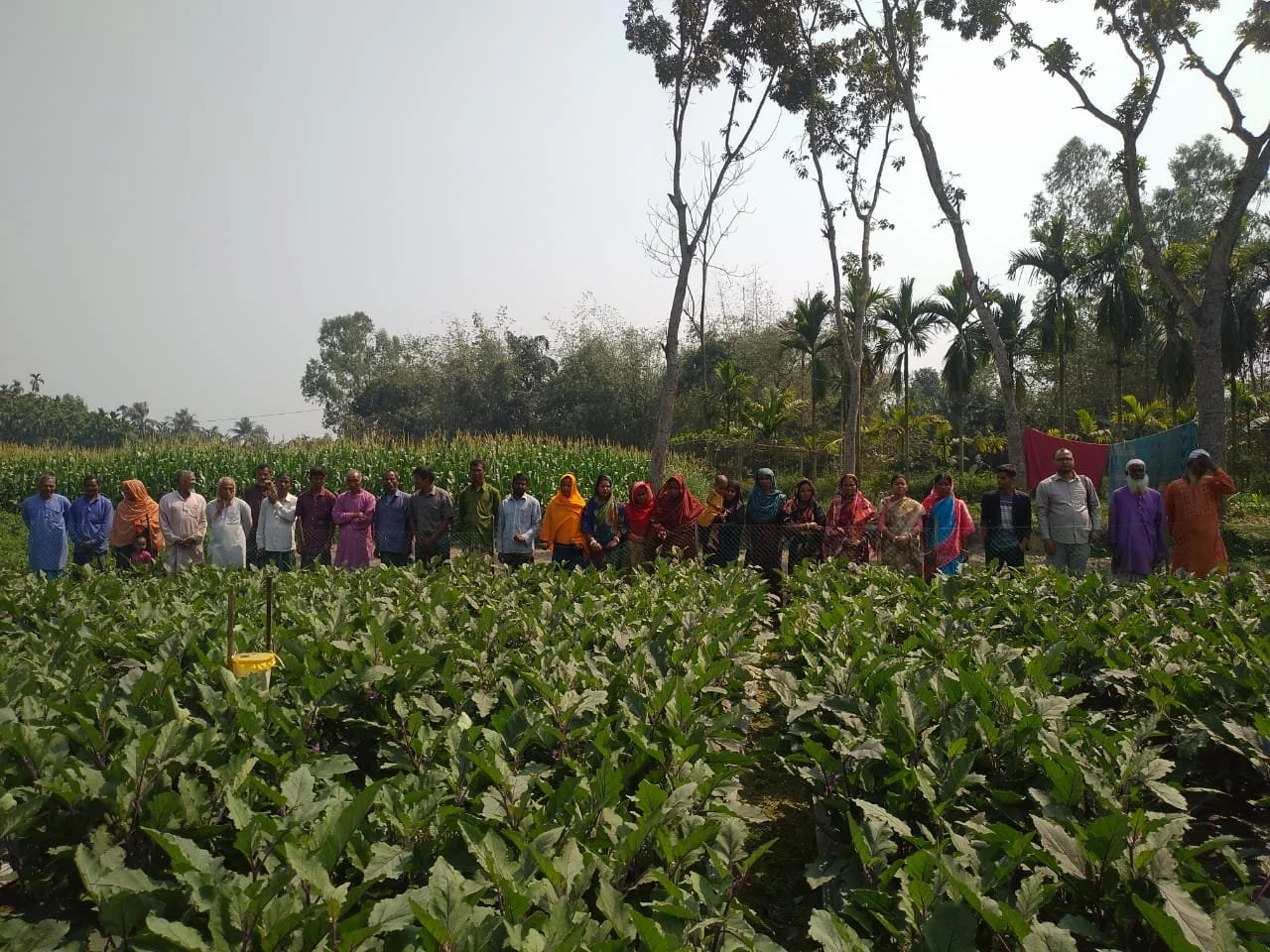
Improved chilli production systems
Irrigation constrained diversification
Overview
In the Gaddarpar area, diversification efforts focus on cultivating chili crops in the villages of Chotto Atharakatha and Baro Atharokatha, which are constrained by limited access to irrigation. Chilli was chosen due to its low water requirements, and the possibility of introducing mulching techniques can further reduce irrigation needs. Though some farmers already grow chili, making it a familiar crop. Chilli also provides an opportunity to engage women, especially in harvesting. Despite the labor demands, chili cultivation requires less capital investment than other crops, making it more attractive to smallholder farmers. The crop's relatively stable market prices and lower initial investment costs make chili cultivation a favorable option in this irrigation-constrained region.
Who is working in the Pathway
The partners for this pathway include Satmile Satish Club o Pathagar (SSCOP), CIMMYT, UBKV, GoWB (Government of West Bengal), Horticulture Department, KVK (Krishi Vigyan Kendra), and CIMMYT.
Activities
The planned activities for the chilli cultivation pathway
Identification of suitable variety: This activity involves selecting chilli varieties that are well-suited to the region’s climatic conditions and water availability, ensuring optimal growth and yield potential.
Cluster demonstration and On-Farm Trial (OFT), monitoring: Cluster demonstrations will showcase the benefits of chilli cultivation, while on-farm trials will test different cultivation practices under real-world conditions. Monitoring will track the progress and assess the results, allowing adjustments to improve practices.
Sowing window identification: Determining the optimal time for sowing chilli is crucial to avoid adverse weather conditions and maximize yield. Identifying the right sowing window ensures the crop grows during the most favorable environmental conditions.
In situ moisture conservation: Techniques such as mulching, which conserve soil moisture, will be promoted to help farmers maintain adequate water levels for chilli crops. This is particularly important in irrigation-constrained areas to improve crop resilience during dry spells.
Soil testing and planned collection of soil samples: Regular soil testing helps in determining the soil’s nutrient content, pH, and other critical factors that influence crop health. Based on soil test results, farmers can receive tailored advice on how to amend soil for optimal chilli production.
Awareness meeting on in situ moisture conservation and PoP (Package of Practices): Farmers will be educated about moisture conservation techniques and the best practices for chilli cultivation (PoP), which can include optimal irrigation, mulching, and water-efficient farming practices.
Development of IEC (Information, Education, and Communication) materials: Informational materials like leaflets, posters, and videos will be developed to share essential knowledge on best practices, pest control, and other critical aspects of chilli farming.
Field Visits: Regular field visits will be organized to observe progress, provide on-site advice, and help farmers address challenges they may face during cultivation.
Field Day: Field Days will be held to demonstrate the successful practices and results of the trials and demonstrations, allowing farmers to observe and learn firsthand from others’ experiences.
Agro-advisory service via WhatsApp: A WhatsApp group has been created to share agro-meteorological information, such as weather updates, pest alerts, and crop health advice, and where farmers post if they face any issues for expert to response. This real-time service will help farmers address issues promptly.
Hands-on training on agro-techniques: Practical training sessions will be organized to teach farmers various techniques, such as proper irrigation methods, pest management, and soil care, to enhance chilli cultivation.
WhatsApp group for real-time resolution of issues: The WhatsApp group will provide immediate support to farmers by resolving crop-related issues, answering questions, and offering advice on managing challenges as they arise.
Standardizing PoP (Package of Practices) for OFT and Demonstration farmers: The PoP for the OFT and demonstration farmers will be standardized, ensuring that all participating farmers follow the same best practices. This standardization will be based on PoP developed by UBKV, ensuring uniformity and better results in trials and demonstrations.
Results for each year – achievements and what we have learned
Over the course of the year, significant progress has been made in the chilli cultivation pathway. Several field visits were organized, offering farmers hands-on guidance and the opportunity to directly engage with experts. These visits were crucial for identifying challenges early and addressing them with tailored solutions. In addition to the field visits, regular information dissemination on crop health and agro-meteorological updates has been provided through UBKV’s Grameen Krishi Mausam Sewa, which publishes twice a week. This service has allowed farmers to receive timely weather forecasts and health alerts, enabling them to make informed decisions about their crop management. Capacity-building activities have been another cornerstone of this pathway, with numerous meetings and training sessions conducted to enhance farmers' skills. These sessions focused on introducing better farming practices, techniques, and innovations in chilli cultivation, empowering farmers to adopt more efficient and sustainable approaches.
From these activities, learnings include consistent engagement through field visits and training plays a key role in improving farmers’ knowledge and confidence. Regular updates and expert advice have proven essential in guiding timely interventions for crop health, while the upcoming Field Day will provide a valuable platform for further peer-to-peer learning and collective growth in the region.

Case Study Report
Chilli Cultivation with Poly-mulching
Farm Household Livelihood Diversification: Trade-offs & Synergies

